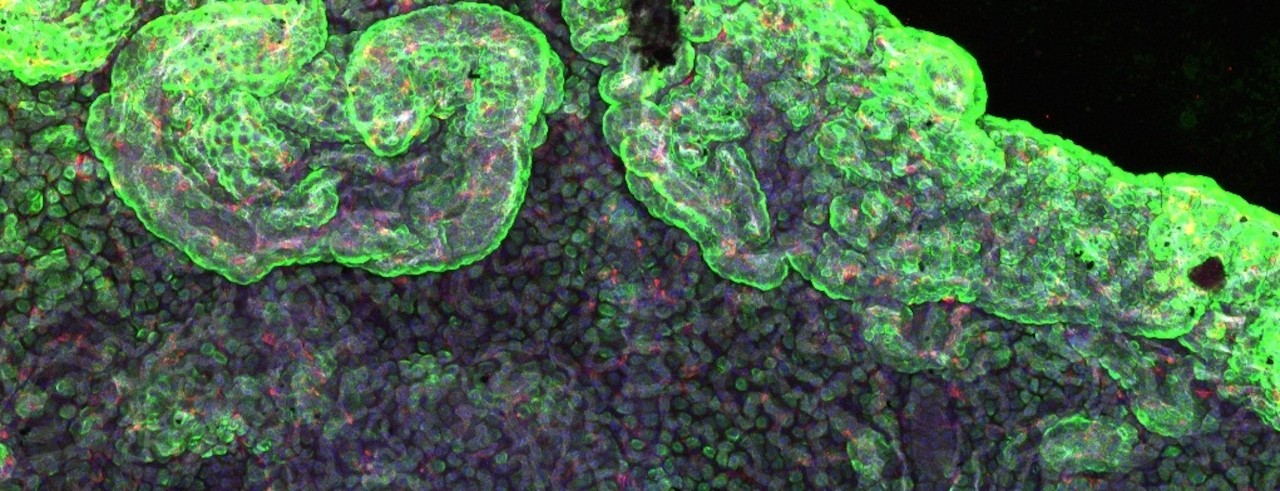
UC study: Brain organ plays key role in adult neurogenesis
Research published in the Proceedings of the National Academy of Sciences
University of Cincinnati researchers have pioneered an animal model that sheds light on the role an understudied organ in the brain has in repairing damage caused by stroke.

Agnes (Yu) Luo, PhD. Photo/Andrew Higley/UC Marketing + Brand.
The research was published July 2 online in the Proceedings of the National Academy of Sciences and sought to learn more about how the adult brain generates new neurons to repair damaged tissue.
The research team focused on the choroid plexus, a small organ within brain ventricles that produces the brain’s cerebrospinal fluid (CSF). CSF circulates throughout the brain, carrying signaling molecules and other factors thought to be important for maintaining brain function. However, prior to this study, little was known about the roles the choroid plexus and CSF play in brain repair after injury due to a lack of available adult animal models.
“We have discovered a new use of an animal model to be able to allow us to manipulate the adult choroid plexus and CSF for the first time,” said Agnes (Yu) Luo, PhD, corresponding author on the study, and professor and vice chair in the Department of Molecular and Cellular Biosciences in UC’s College of Medicine. “Now that we’ve discovered it, this will be vitally applicable to allow researchers to manipulate the adult choroid plexus and CSF to study different disease models and biological processes.”

Luo and Taranov work together in a lab. Photo/Andrew Higley/UC Marketing + Brand.
UC graduate student and study coauthor Aleksandr Taranov explained that in a process called adult neurogenesis, the adult brain maintains a certain capacity to repair damage by regenerating newly born neurons.
“However, we still don’t know what actually regulates adult neurogenesis and how to redirect the neurons into the lesion site following a stroke,” Taranov said.
Using this new model, the researchers found that removing the choroid plexus — and the resulting loss of CSF in brain ventricles — led to a reduction of newly born immature neurons called neuroblasts. In a model of ischemic stroke, the team found the loss of the choroid plexus and CSF led to fewer neuroblasts migrating to the lesion site and repairing damage caused by a stroke.
“This suggests that the choroid plexus may be needed to retain these neuroblasts in the area where they usually reside,” Taranov said. “And the choroid plexus might actually be required to retain the neuroblasts so they can readily migrate into the stroke site whenever a stroke or other injury occurs.”

Luo and Taranov in the College of Medicine. Photo/Andrew HIgley/UC Marketing + Brand.
Essentially, Luo said, it appears the choroid plexus keeps a garrison of regenerative cells that are ready to be deployed to injured areas in the brain in animal models of stroke. Further research is needed to confirm whether this also occurs in human brains.
Moving forward, Taranov is studying how the loss of the choroid plexus and CSF affects the clearing of toxic proteins in a model of Alzheimer’s disease, and fellow graduate student Elliot Wegman is studying the same effects in a model of Parkinson’s disease.
Innovation Lives Here
The University of Cincinnati is leading public urban universities into a new era of innovation and impact. Our faculty, staff and students are saving lives, changing outcomes and bending the future in our city's direction. Next Lives Here.
This study was supported by National Institutes of Health grants (R01AG083164 and R21NS127177). Other study coauthors include UC’s Alicia Bedolla, and Eri Iwasawa, Farrah Brown, Sarah Baumgartner, Elizabeth Fugate, Joel Levoy, Steven A. Crone and June Goto of Cincinnati Children’s Hospital Medical Center.
Featured photo at top: Fluorescent image of a healthy choroid plexus, the main producer of cerebrospinal fluid in the brain. Image provided by Agnes (Yu) Luo.
Related Stories
UC study: Brain organ plays key role in adult neurogenesis
July 2, 2024
The University of Cincinnati has published research in the Proceedings of the National Academy of Sciences that found the choroid plexus and cerebrospinal fluid play a key role in maintaining a pool of newly born neurons to repair the adult brain after injury.
Study: Novel drug promotes nervous system repair in animal models of stroke
July 28, 2022
Researchers led by the University of Cincinnati's Agnes (Yu) Luo, PhD, have published findings in the journal Cell Reports showing a novel drug helped to repair the damage caused by ischemic stroke in animal models.
UC study: Signaling pathway in brain helps maintain health, prevent cognitive deficit
June 24, 2024
Research led by the University of Cincinnati sheds new light on the role of the TGF-β signaling pathway in the brain to maintain balance and prevent inflammation and cognitive deficits.
